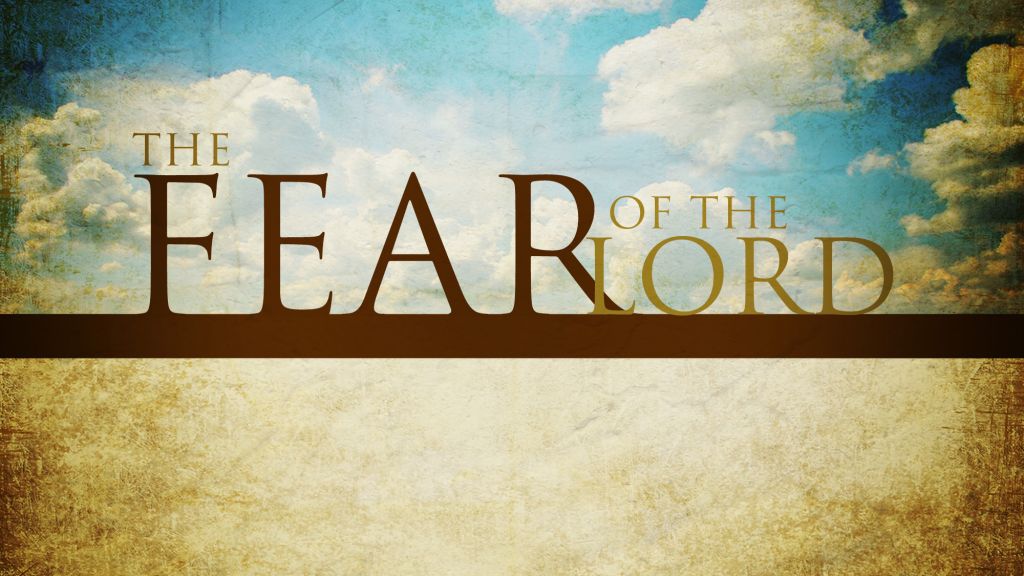
8 Feb 2015 by Lim Poh Ann-
Why not? Fear can save our skin and much more.
A Facebook friend who believes in eternal security, Once Saved, Always Saved (OSAS), **commented that I should not incite fear in people by saying that believers can lose their salvation: “If you make believers feel insecure about their salvation in Jesus, you are causing unnecessary fear. Why are you putting fear in people? This is not from God.”
Here is my reply. The Bible warns us to fear God, the One who can cause a person to suffer eternally in hell, a place where the fire never dies.
“Do not be afraid of those who kill the body but cannot kill the soul. Rather, be afraid of the One who can destroy both soul and body in hell” (Matthew 10:28).
“But I will show you whom you should fear: Fear him who, after your body has been killed, has authority to throw you into hell. Yes, I tell you, fear him” (Luke 12:5).
“If your hand causes you to stumble, cut it off. It is better for you to enter life maimed than with two hands to go into hell, where the fire never goes out” (Mark 9:43-44).
“It is a dreadful thing to fall into the hands of the living God” (Hebrews 10:31).

The story of the rich man and Lazarus (Luke 16:19-31) gives us a glimpse into the state of continual consciousness of torment in hell. This picture of everlasting torment in hell is reflected in the expression ‘weeping and gnashing of teeth’.
The consequences of sin are serious if repentance has not been sought. Once a person is consigned to hell in the afterlife, it is irrevocable. There is no more opportunity to repent once our life on earth ends. It is appointed for man to die once, and after that comes judgment (Hebrews 9:27). The absence of rebirth means there are no more chances to redeem ourselves after we die.

Let’s look into the Parable of the Talents (Matthew 25: 14-30) where the expression ‘wailing/ weeping and gnashing of teeth’ is being used. What happened to the wicked and slothful servant who failed to multiply the single talent given to him?
“For whoever has will be given more, and they will have an abundance. Whoever does not have, even what they have will be taken from them. And throw that worthless servant outside, into the darkness, where there will be weeping and gnashing of teeth” (Matthew 25: 29-30).
Fear is often seen as undesirable and negative. We are reminded to be bold, not to be fearful, as God is with us (Joshua 1:9). Perfect love casts out fear (1 John 4:18). However, we also need to consider the other side of the coin—reverential fear of God.
“Fear of the LORD is the foundation of true wisdom. All who obey his commandments will grow in wisdom” (Psalm 111:10).

Scripture is replete with examples showing us the positive aspect of fearing God. Because they feared God, the midwives obeyed Him—rather than the King of Egypt—and spared the lives of the Hebrew babies (Exodus 1:17). Pharaoh brought disaster on his nation because he did not fear God (Exodus 9:29-31). Job was a blameless and upright man who feared God (Job 1:1). Cornelius was a devout centurion who feared God, gave alms and prayed constantly (Acts 10: 2). And he was rewarded when God arranged for Peter to preach the Gospel to him.
Holy fear is evident in this passage:
“By faith Noah, being warned by God concerning events as yet unseen, in reverent fear constructed an ark for the saving of his household. By this he condemned the world and became an heir of the righteousness that comes by faith” (Hebrews 11:7).

Reverential fear is positive. It leads us to we proactively seek God and set ourselves right before Him—by confessing our sins and obeying Him. Thus, we save our own skin and are preserved from the unquenchable fire of hell.
Now who says fear is such a bad thing? If there’s ever a type of fear we cannot afford to miss out on, it is reverential fear.
RELATED POSTS
**
Once saved, always saved (OSAS)? Some Christians believe, once they are saved, absolutely nothing can happen to them to alter their destiny. Even though they might live in sin or deny God, they believe that one day they will surely reach their final destination in heaven.
Two men share about their supernatural experiences in heaven and hell.
Many a time fear has been bandied around as something negative. But fear has its positive side as well. When my children were toddlers, my wife and I had this fear that they might hurt themselves at home. Knives had to be safely kept away. Furniture with sharp corners and those made of glass were excluded from our shopping list. A gate with latch had to be installed to keep them from falling down the stairs.
Source of Article: http://limpohann.blogspot.com/2015/01/can-fear-be-positive.html
REFERENCES
The Rich Man and Lazarus (Luke 16:19-31)
“There was a rich man who was dressed in purple and fine linen and lived in luxury every day. At his gate was laid a beggar named Lazarus, covered with sores and longing to eat what fell from the rich man’s table. Even the dogs came and licked his sores.
“The time came when the beggar died and the angels carried him to Abraham’s side. The rich man also died and was buried. In Hades, where he was in torment, he looked up and saw Abraham far away, with Lazarus by his side. So he called to him, ‘Father Abraham, have pity on me and send Lazarus to dip the tip of his finger in water and cool my tongue, because I am in agony in this fire.’
“But Abraham replied, ‘Son, remember that in your lifetime you received your good things, while Lazarus received bad things, but now he is comforted here and you are in agony. And besides all this, between us and you a great chasm has been set in place, so that those who want to go from here to you cannot, nor can anyone cross over from there to us.’
“He answered, ‘Then I beg you, father, send Lazarus to my family, for I have five brothers. Let him warn them, so that they will not also come to this place of torment.’
“Abraham replied, ‘They have Moses and the Prophets; let them listen to them.’
‘‘No, father Abraham,’ he said, ‘but if someone from the dead goes to them, they will repent.’
“He said to him, ‘If they do not listen to Moses and the Prophets, they will not be convinced even if someone rises from the dead.’
Weeping and Gnashing of Teeth
The phrase “wailing and gnashing of teeth” is found seven times in the New Testament. Even though it is used on three occasions of the experience of the unregenerate in hell (Matthew 13:42, 50; Luke 13:28), it is also used on four occasions of the regenerate in the kingdom (Matthew 8:12; 22:13; 24:51; 25:30).
Source: http://www.middletownbiblechurch.org/doctrine/hodgesgn.htm
| Share the Good News |




Leave a Reply